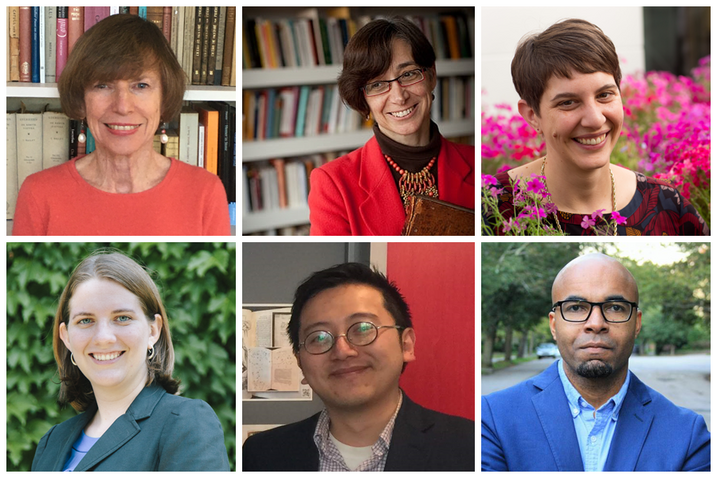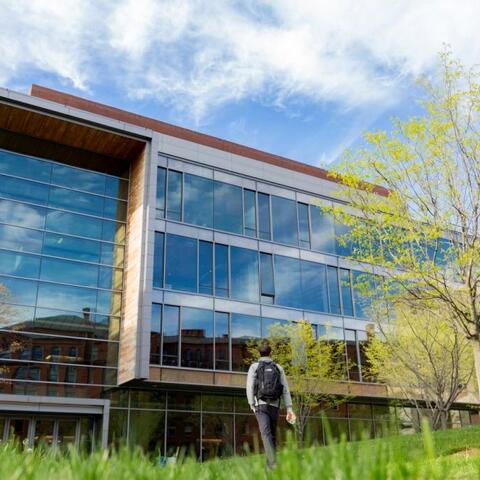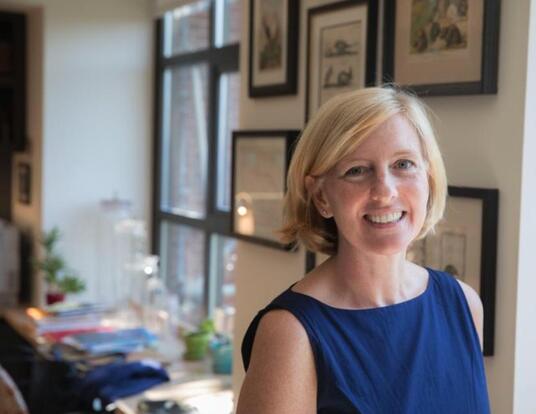What Makes a Mentor Great
The 2020 Everett Mendelsohn Excellence in Mentoring Awards
Every year, the GSAS Student Council (GSC) makes a call for nominations to honor outstanding faculty—but instead of recognizing their prowess in the classroom or their number of publications, the GSC is honoring their exceptional mentoring skills.
The Importance of Students
Established more than 20 years ago, the Everett Mendelsohn Excellence in Mentoring Awards were funded by a donation from Professor of the History of Science, Emeritus, Everett I. Mendelsohn, who spent nearly 50 years as a member of the Harvard Faculty. Mendelsohn was an avid mentor in his time as an educator: A Harvard Crimson article written just before his retirement in 2007 said that his “ability to inspire generations of students will serve as his legacy long after he steps out of the classroom for the last time.”
The Mendelsohn Awards have become a prestigious recognition of faculty who mentor GSAS students, with the added benefit that they are entirely student-led. Each year, students nominate professors, either individually or in groups, with heartfelt letters that highlight what makes each professor so valued to them.
“The Mendelsohn Awards recognize the mentors, but they also give students the power to designate who’s doing a good job,” says Zach Hayworth, a PhD student in Germanic Languages and Literatures and past President of the GSC. “The Awards are a moment when students have an impact on how things work, and they represent the importance of the student, not only within the mentoring relationship, but at GSAS more broadly.”
Over the last two decades, the Mendelsohn Awards has gained cachet within the University and beyond, and faculty from across Harvard’s disciplines have been selected for the honor over the years.
“Because mentorship looks so different based on the field, the testimonials and what makes a mentor great are very diverse,” adds Hayworth. “The student selection committee gets a wide sense of how advising works in other departments, and deciding who wins is very difficult because all of the recommendations are so strong.”

Many Ways to Mentor
Once the 30 different faculty nominations came in this year, Michael Ortiz, then GSC Secretary, took over as head of the selection committee, which comprises members of the GSC Executive Board and volunteers from their At-large Representatives.
“We aim for the awardees to not only be the standout mentors, but also to represent a broad swath of disciplines,” says Ortiz. “There are so many particularities in advising that vary by discipline, but by reading through all of these nominations, several common threads emerge that all students appreciate—no matter what they’re studying.
“On a fundamental level, the Mendelsohn Awards are an excellent way to tell our professors that this is what we students value and want from the mentor/mentee relationship. The awardees are leading by a positive example.”
Ortiz’s point is a good one: Systemically across higher education, a perception can exist that being a good advisor is a skill that a professor either has or doesn’t have, and it can’t be improved through education or training. The Advising Project at GSAS—launched by GSAS Dean Emma Dench and directed by Reba Rosenberg, PhD '08—is a two-year, in-depth initiative that seeks to change this misconception by evaluating, sharing, and celebrating what constitutes effective advising and best practices.
“We want to encourage faculty to think about the great things that they’re each already doing in their advising relationships, and also give them the tools to conceptualize and recognize what they could do to improve,” says Rosenberg.
For Robin Hopkins, John L. Loeb Associate Professor of the Natural Sciences and associate professor in the Department of Organismic and Evolutionary Biology, her top advising goal is to get students where they want to be next—which means something different to every mentee.
“There isn’t one mentoring strategy that will work for everybody,” Hopkins says. “Some people need a cheerleader; others need a critic. It’s important to cater your mentoring style to the person you’re working with, which is time-consuming, but more enjoyable than trying to pigeonhole everyone.”
Tamar Herzog, Monroe Gutman Professor of Latin American Affairs, thinks of the advising relationship as a joint voyage.
“The student is the pilot of the ship, and I’m the passenger,” Herzog says. “They take me places I’ve never been before and that’s the point: I can go the places that I want to go on my own. It’s my job to say, ‘watch out for that rock’ or ‘go faster or slower,’ but this is their journey and they’re in charge of the trip.”
Hallmark of a Strong Research University
Across the board, the 2020 winners of the Mendelsohn Awards are honored and humbled to receive this kind of recognition from their students.
“It means so much to receive an award that’s initiated by students,” says Alexandra “Sasha” Killewald, professor of sociology.
“I am thrilled,” says Kathleen Coleman, James Loeb Professor of the Classics. “It’s tremendously affirming to be honored for mentoring. I feel that being a good advisor means I’m just doing my job. We have outstanding students, so it’s a huge inspiration to work with them.”
As Coleman’s primary nominator for the awards, James L. Zainaldin, PhD student in the classics, thinks the Mendelsohn Awards serve an enormous purpose.
“The awards recognize a quality and dedication that these exemplary faculty have that’s not often captured in a way that receives wider attention,” says Zainaldin. “The Mendelsohn Awards make sure that the skill and art of mentorship is rewarded. These professors put a tremendous amount of work into advising, and it is life-changing for the students.”
Victor Seow, assistant professor of the history of science, agrees with Zainaldin’s perception, seeing the Mendelsohn Awards as one of the hallmarks of a strong research university.
“I think it is difficult to separate the production of excellent research from our teaching and mentorship,” says Seow. “I have learned so much from the graduate student colleagues I train and work with. They have introduced me to new literatures beyond my fields, shown me different ways to look at familiar problems, and pushed me to clarify my thinking. They have, without question, helped make me a better scholar. I am truly grateful for them.”
Get the Latest Updates
Join Our Newsletter
Subscribe to Colloquy Podcast
Simplecast Stitcher





